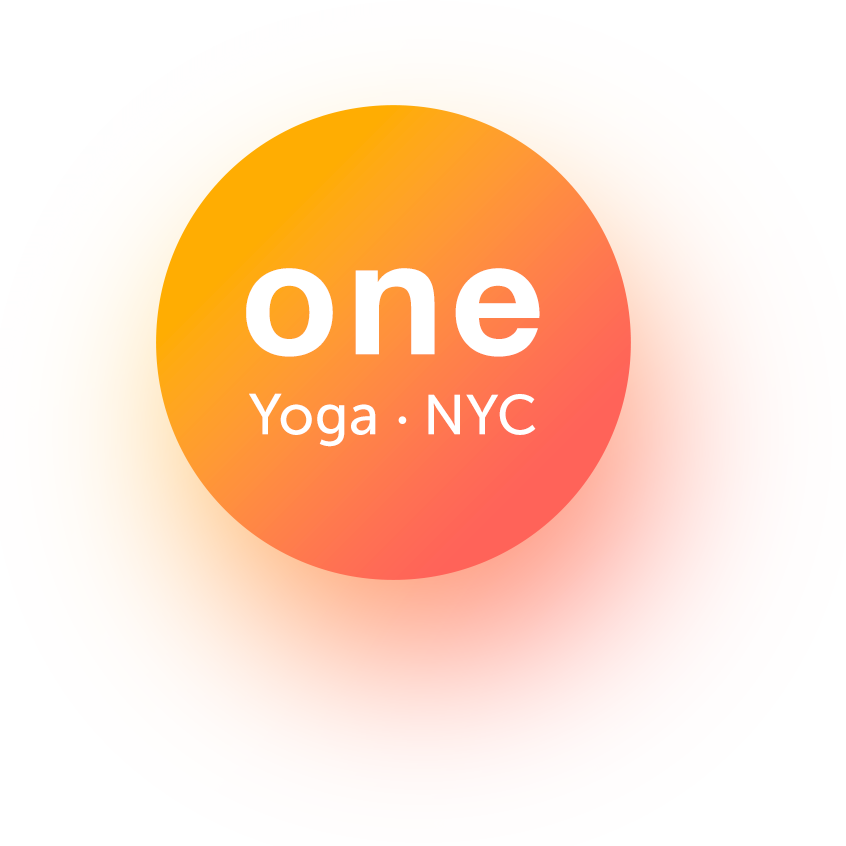oneyoganyc@gmail.com
NY,NY 121 Fulton Street
NY,NY 121 Fulton Street
Yoga as a system of self-development
The topic of self–knowledge and self-development in the modern world is becoming more popular, people are becoming more aware that the meaning of human life is not only in physical survival, but also in harmony with their inner self, in an adequate attitude to the world around them.
For many people, yoga and self-development have become synonymous. Start practicing yoga today
and tomorrow you will evaluate your thoughts, your body, your life in a new way. Despite the fact that currently there are many practices of self–development, yoga is perhaps the only direction that organically
combines physical development and the development of inner qualities of a person – harmony of mind and body, psychological balance, contact with oneself.
If you are trying to decide which yoga practice to choose for training, come to the Yoga Center in New York . Having been engaged in the development of yoga studios in Europe for more than 12 years, our team of teachers opened the first yoga studio in Manhattan, providing everyone with the opportunity not only to improve their physical and emotional health, but also to take the first steps to self-knowledge.
For many people, yoga and self-development have become synonymous. Start practicing yoga today
and tomorrow you will evaluate your thoughts, your body, your life in a new way. Despite the fact that currently there are many practices of self–development, yoga is perhaps the only direction that organically
combines physical development and the development of inner qualities of a person – harmony of mind and body, psychological balance, contact with oneself.
If you are trying to decide which yoga practice to choose for training, come to the Yoga Center in New York . Having been engaged in the development of yoga studios in Europe for more than 12 years, our team of teachers opened the first yoga studio in Manhattan, providing everyone with the opportunity not only to improve their physical and emotional health, but also to take the first steps to self-knowledge.
The Sanskrit roots of Yoga
From Sanskrit "yoga" is translated as "connection, harmony, union, unification". Currently, there are a huge number of interpretations of the very concept and description of the meaning of yoga. But most of them boil down to the fact that this is the science of man, his connection with the divine principle of nature, as well as the tools to achieve a state of harmony and happiness. In the modern world, yoga is considered not just the oldest system of self-knowledge, but also one of the most effective methods with effective exercises for self-development.
The yoga system is based on the combination of various practices and psychophysical exercises to achieve an elevated spiritual state, including:
working with the mind, self–knowledge through logic and knowledge – the study of ancient texts and treatises on the structure of the mind, body and psyche of man, the nature of consciousness and the universe, a number of practices for working with the physical body – asanas, cleansing the body, proper nutrition, pranayama - various breathing practices, meditation and yoga practices Mindfulness .
From Sanskrit "yoga" is translated as "connection, harmony, union, unification". Currently, there are a huge number of interpretations of the very concept and description of the meaning of yoga. But most of them boil down to the fact that this is the science of man, his connection with the divine principle of nature, as well as the tools to achieve a state of harmony and happiness. In the modern world, yoga is considered not just the oldest system of self-knowledge, but also one of the most effective methods with effective exercises for self-development.
The yoga system is based on the combination of various practices and psychophysical exercises to achieve an elevated spiritual state, including:
working with the mind, self–knowledge through logic and knowledge – the study of ancient texts and treatises on the structure of the mind, body and psyche of man, the nature of consciousness and the universe, a number of practices for working with the physical body – asanas, cleansing the body, proper nutrition, pranayama - various breathing practices, meditation and yoga practices Mindfulness .

The purpose of yoga
All the teachings in yoga are based on the main belief – a person is not limited by his body, but
is an immortal consciousness, which neither illness nor death can affect. But a person does not know his nature, so the body is able to give him both pleasure and suffering. Yoga is the path that allows a person to reach the highest state of awareness. With the help of various practices, he first stops identify yourself with the body and mind, begins to realize the difference between himself and his corporeal shell. Getting rid of ignorance, a person understands that his consciousness is exactly that divine, universal consciousness. That is, the main goal of yoga classes is to achieve freedom from desires and passions, from the limitations of the body and mind, to know oneself.
All the teachings in yoga are based on the main belief – a person is not limited by his body, but
is an immortal consciousness, which neither illness nor death can affect. But a person does not know his nature, so the body is able to give him both pleasure and suffering. Yoga is the path that allows a person to reach the highest state of awareness. With the help of various practices, he first stops identify yourself with the body and mind, begins to realize the difference between himself and his corporeal shell. Getting rid of ignorance, a person understands that his consciousness is exactly that divine, universal consciousness. That is, the main goal of yoga classes is to achieve freedom from desires and passions, from the limitations of the body and mind, to know oneself.
Yoga Philosophy
The main postulate in yoga is the belief that all living beings do not live one life, and death is just a transition from one state to another. A being can be born and die millions of times, until it reaches self-consciousness and is freed from the shackles of the material world.
Another important point in yoga is the awareness of karmic connections. According to yoga, every living being has his own karma, which is largely due to his actions in his past life. The goal of yoga is to get out of the plane of karma, which determines his future life. Thanks to regular meditation, a person is able to realize his independence from karma and get the opportunity to change it.
Considering the philosophy of yoga, it is possible to identify several characteristics that most accurately describe this ancient science in the context of human influence:
The main postulate in yoga is the belief that all living beings do not live one life, and death is just a transition from one state to another. A being can be born and die millions of times, until it reaches self-consciousness and is freed from the shackles of the material world.
Another important point in yoga is the awareness of karmic connections. According to yoga, every living being has his own karma, which is largely due to his actions in his past life. The goal of yoga is to get out of the plane of karma, which determines his future life. Thanks to regular meditation, a person is able to realize his independence from karma and get the opportunity to change it.
Considering the philosophy of yoga, it is possible to identify several characteristics that most accurately describe this ancient science in the context of human influence:
- spirituality – yoga is focused on comprehending being through awareness of the independent
- spirit of the individual,
- ethics – one of the main principles of yoga is nonviolence,
- emotionality - practice of love, kindness and compassion,
- practicality – teaches you to manage your body, mind, life,
- intelligence – all yoga techniques are based on the use of the forces of reason.
Functions of asanas
In Sanskrit, asana means "sitting posture, a place to sit", that is, it is a tool that is used for spiritual and physical development in order to get the maximum effect from yoga classes.
Performing asanas helps to achieve several goals at once:
In Sanskrit, asana means "sitting posture, a place to sit", that is, it is a tool that is used for spiritual and physical development in order to get the maximum effect from yoga classes.
Performing asanas helps to achieve several goals at once:
- to eliminate imperfections on the physical level, asanas are primarily working with the body,
- strengthening the body,
- providing the most comfortable posture for meditation, since yoga believes that in a stationary state of the body, the mind also becomes stationary,
- to influence the mind through influence on the body.

Pranayama and Meditation
Pranayama is a breathing exercise that helps to control vital energy (prana), which is very closely related to the mind. Thanks to breathing, you can save energy, increasing your awareness and increasing the efficiency of your own life.
Meditation is the ability to focus on one thing, this is a state in which there is no tension, but all
attention is gathered into a single stream.
Benefits for the body and positive effects of meditation – first of all, this is an opportunity to achieve the main goal – harmony of soul and body. At the same time, practitioners note a number of other important achievements:
getting rid of stress, the ability to control their thoughts, realize their place in the "here and
now" paradigm, radically change their lives by changing their attitude to the world around
them.
Pranayama is a breathing exercise that helps to control vital energy (prana), which is very closely related to the mind. Thanks to breathing, you can save energy, increasing your awareness and increasing the efficiency of your own life.
Meditation is the ability to focus on one thing, this is a state in which there is no tension, but all
attention is gathered into a single stream.
Benefits for the body and positive effects of meditation – first of all, this is an opportunity to achieve the main goal – harmony of soul and body. At the same time, practitioners note a number of other important achievements:
getting rid of stress, the ability to control their thoughts, realize their place in the "here and
now" paradigm, radically change their lives by changing their attitude to the world around
them.
To achieve this effect, it is worth trying Jivamukti Yoga .
This is an ideal practice for those who do not want to limit themselves only to physical exercises and are ready to work on further self-development. Each training includes both performing asanas and studying the scriptures (fragments of ancient texts are read), chanting mantras, meditation. Exercises are performed to music. The set of exercises itself is a smooth sequence of poses combined with breathing and flowing into each other. Practitioners of
Jivamukti yoga note that this practice allows you to go beyond your own limitations, to gain the ability to control your spiritual and physical condition as much as possible.
This is an ideal practice for those who do not want to limit themselves only to physical exercises and are ready to work on further self-development. Each training includes both performing asanas and studying the scriptures (fragments of ancient texts are read), chanting mantras, meditation. Exercises are performed to music. The set of exercises itself is a smooth sequence of poses combined with breathing and flowing into each other. Practitioners of
Jivamukti yoga note that this practice allows you to go beyond your own limitations, to gain the ability to control your spiritual and physical condition as much as possible.
Principles of yoga in the modern world
Despite the ancient history, the observance of the principles of yoga is more relevant today than ever:
- hygiene of the body and mind,
- restrictions for the preservation of strength and health necessary for spiritual growth,
- rejection of fleeting pleasures,
- the ability to be grateful for what you have,
- kindness to yourself and others,
the desire to help others.
Afterword
Do you share these principles and are ready to practice yoga in order to improve yourself?
Then come to the Yoga Center in New York . We have instructors with many years of experience who individually approach each applicant. With their help, you will not just master asanas or learn to meditate, but also discover the ability to change your life for the better, regardless of the world around you, revealing internal sources of strength.
Despite the ancient history, the observance of the principles of yoga is more relevant today than ever:
- hygiene of the body and mind,
- restrictions for the preservation of strength and health necessary for spiritual growth,
- rejection of fleeting pleasures,
- the ability to be grateful for what you have,
- kindness to yourself and others,
the desire to help others.
Afterword
Do you share these principles and are ready to practice yoga in order to improve yourself?
Then come to the Yoga Center in New York . We have instructors with many years of experience who individually approach each applicant. With their help, you will not just master asanas or learn to meditate, but also discover the ability to change your life for the better, regardless of the world around you, revealing internal sources of strength.


